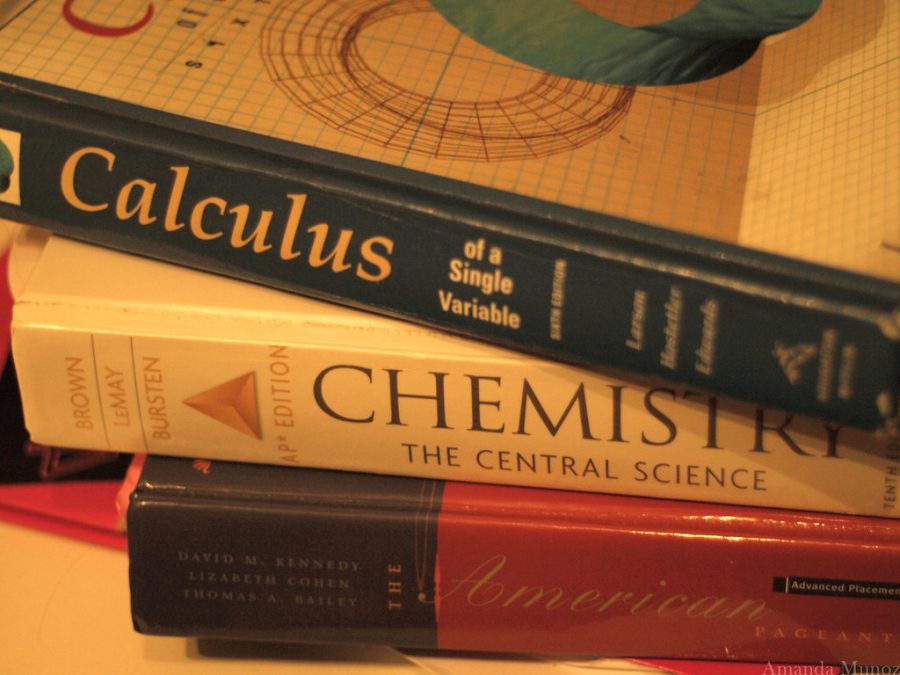Do AP exams mark the end of your AP class?
Photo Courtesy of Creative Commons.
AP tests take place in late may and many students spend the weeks leading up to their exams studying.
June 6, 2019
AP exams are widely accepted as the culminating final exam to test how well you know the material from an AP course. But to many students, AP exams signal the end of the class.
All classes are scheduled to last until the end of the school year, but as AP classes are widely regarded as “test prep” classes, many students and even some teachers lose the learning mindset after the exam.
“Most of my AP classes continue teaching after the AP exam,” senior Rebecca Hu said. “I think for AP classes, after the exam students should be able to relax, but if the class isn’t an AP, then the teacher should keep teaching.”
The weeks leading up to the exam can often be stressful and jam-packed with last minute information. Students often see the time following the exam as a time to relax and reflect back on the stressful studying over the course of the school year.
“I think teachers should give students a break for at least a week before jumping right back into a project or new material since we’ve been working so hard for so long,” junior Kara Groisser said. “They should then give options for the culminating project. This allows students to channel their creativity since all year the curriculum has been strict in preparation for the exam.”
Especially since a majority of AP classes are very senior-heavy classes and seniors graduate shortly after exams are over, holding a class lesson may seem insignificant with only as few as five students in class each day.
“Most of my AP classes only have projects after the exam, but there are a few classes like AP BC Calculus where we learn more after the exam,” junior Serena Xu said.
Many teachers have turned to culminating projects as a way for students to continue learning while not exhausting the students.
“It is hard to try teaching any new material afterwards since students are not as engaged, but there should be some sort of learning activities going on so the students still benefit from the class time/learning opportunities,” AP Chinese teacher Yih Lee said.
What each class does after the exam is a reflection of what the teacher thinks should be done and whether or not the teacher thinks teaching more information would bring substantial benefits to the students. Some teachers further their teaching by teaching slightly harder topics or teaching different topics outside of the AP curriculum.
“I think it’s important to continue to learn after the AP exam because there is more to the course than the exam,” AP AB Calculus teacher Christopher Tappis said. “Preparing for and taking the exam is one of the goals of the class, but it’s also about learning and appreciating calculus.”
Even with seniors leaving so soon after AP exams, some teachers still try to cover some more material before they graduate to help ensure success when they go off to college.
“I think it is important to realize that with seniors, they are almost done and high stakes assessments are not really valuable at this time of year,”AP English Language and Composition teacher Haroot Hakopian said. “We try to create a project that incorporates many of the themes we discussed in class as well as allow for some creativity.”
Most AP teachers hold the belief that the AP exam is not the top priority of the class and that furthering the students’ learning and understanding of the material is the top priority.
“We want you to be ready for senior year and for college,” Hakopian said. “I don’t really care what my students earn on the AP test. It is significantly more important for me to teach them the skills they need to be successful senior year and into college. Continuing instruction is a great way to reinforce that message.”
Whether or not teachers should teach after the AP exam continues to be an ongoing debate. Each AP class is structured differently but there is an increasing amount of students who tend to stray away from AP classes that continue teaching after the exam. More and more students are drawn to AP classes that seemingly give the students almost the whole fourth quarter off.


